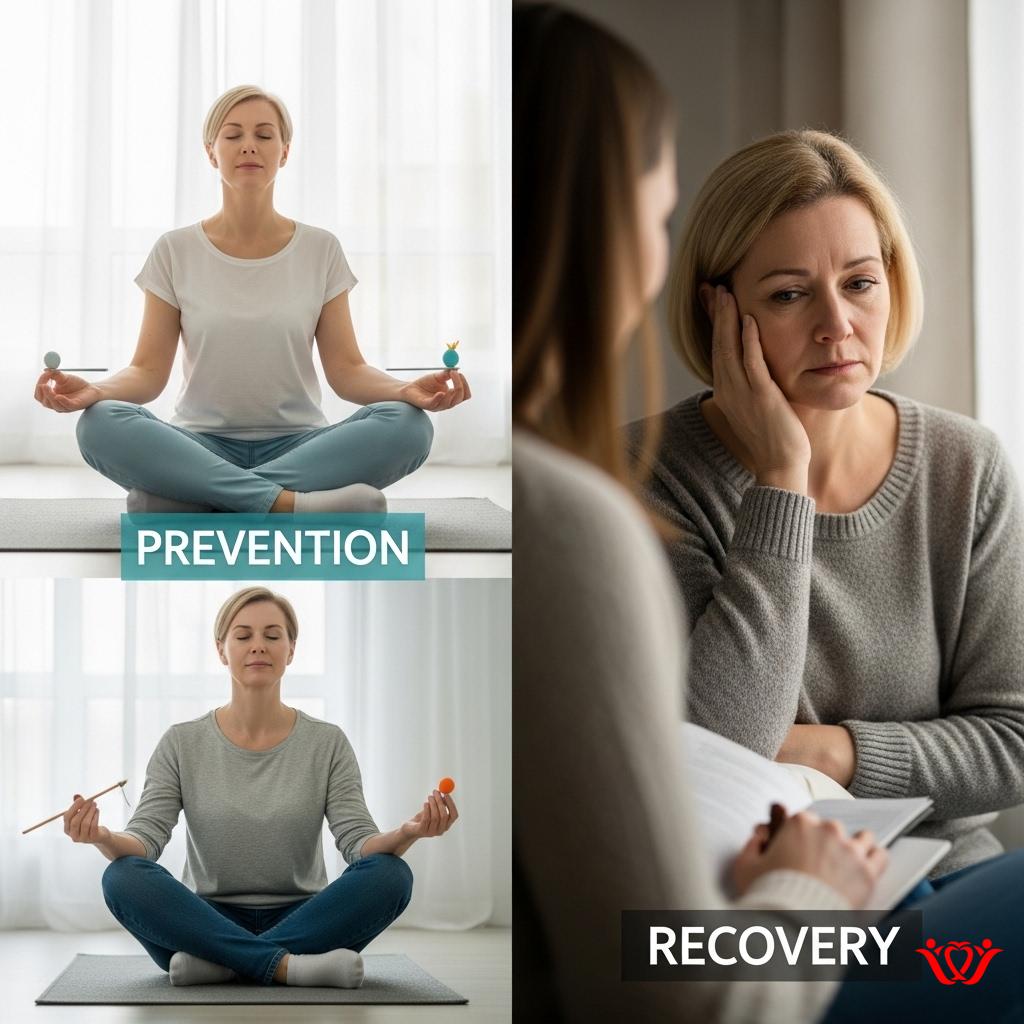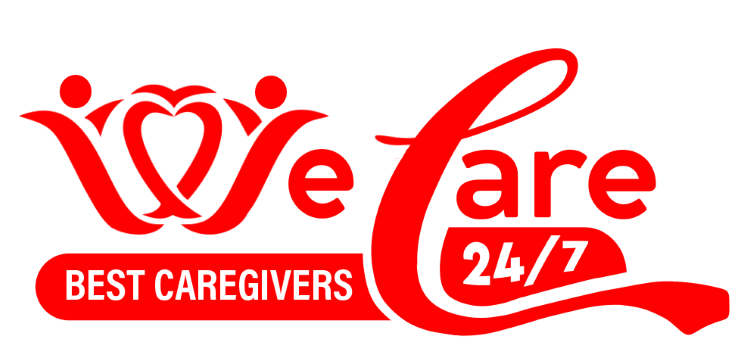Burnout Prevention vs. Recovery: Best Self-Care Strategies for New Jersey Caregivers

Navigating the Caregiving Journey in New Jersey
Caregiving is a profound act of love and dedication. For many individuals across New Jersey, it becomes an integral part of life, whether supporting aging parents, assisting a spouse with health challenges, or caring for a family member with a disability. While deeply rewarding, the demands of caregiving can also be immense, often leading to significant personal sacrifice and emotional strain. The sustained pressures associated with this role can pave the way for a serious condition known as caregiver burnout.
Understanding the nuances of caregiver well-being is paramount. This discussion explores the critical difference between preventing burnout and recovering from its effects. We will delve into actionable self-care strategies tailored for New Jersey caregivers, emphasizing why a proactive approach often yields better, more sustainable outcomes for both caregivers and their loved ones.
Understanding Caregiver Burnout: A New Jersey Perspective
What is Caregiver Burnout?
Caregiver burnout is a state of physical, emotional, and mental exhaustion. It often occurs when caregivers do not get the help they need, or when they try to do more than they are able, either physically or financially. Symptoms can manifest in various ways, including chronic fatigue, irritability, feelings of hopelessness, withdrawal from social activities, and a diminished ability to cope with daily tasks.
Left unaddressed, burnout can severely impact a caregiver’s health, relationships, and even their capacity to provide effective care. Recognizing these signs early is a vital step toward protecting one’s well-being and maintaining a sustainable caregiving role.
The New Jersey Caregiving Landscape and Its Pressures
New Jersey caregivers face unique challenges, from the high cost of living that can strain household budgets to navigating a complex healthcare system. According to AARP, approximately 1.1 million New Jersey residents serve as unpaid family caregivers, providing an estimated 965 million hours of care annually. This immense dedication often comes at a personal cost, as caregivers balance their responsibilities with work, family life, and personal needs.
The urban and suburban density of New Jersey, while offering access to resources, can also mean more traffic, longer commutes to appointments, and increased logistical complexities. These everyday stressors contribute to the cumulative burden caregivers experience, making targeted support and self-care even more essential.
Prevention: Building Resilience Before Burnout Takes Hold
Preventing burnout is always more effective than attempting to recover from its debilitating effects. It involves implementing deliberate self-care practices and establishing support systems before exhaustion sets in. This proactive approach helps caregivers maintain their energy, emotional stability, and overall effectiveness.
Proactive Self-Care Strategies for New Jersey Caregivers
Developing a routine of self-care is not a luxury; it is a necessity for long-term caregiving. These strategies can help build resilience and sustain well-being:
- Set Clear Boundaries and Expectations: Understand your limits and communicate them. It’s acceptable to say no to additional tasks if they compromise your well-being. Define specific times when you are on and off duty if possible, especially if sharing caregiving responsibilities.
- Schedule Regular Respite: Regular breaks are paramount. Even short periods away, such as an hour to read at a local coffee shop in Montclair or a walk along a park path in Princeton, can significantly recharge your batteries. Consider utilizing respite care services available through agencies like WeCare Home Caregivers, allowing you planned time off.
- Prioritize Personal Health: Adequate sleep, nutritious meals, and consistent physical activity are foundational. Many New Jersey community centers or YMCAs offer affordable fitness programs. Simple activities, such as walking in one of New Jersey’s many county parks, can make a difference.
- Maintain Social Connections: Do not isolate yourself. Connect with friends, family, or support groups. Sharing experiences with others who understand your journey can reduce feelings of loneliness and provide valuable insights. Look for caregiver support groups in towns like Cherry Hill or Morristown.
- Seek and Accept Help: Caregiving is not a solo mission. Delegate tasks when possible, whether it’s grocery shopping, meal preparation, or household chores. Professional home care agencies in New Jersey can offer substantial support, providing skilled assistance that eases your burden.
Establishing a Support Network in New Jersey
A robust support network is a powerful preventative tool. New Jersey offers various resources for caregivers:
- Local Support Groups: Many hospitals, community centers, and organizations like the Alzheimer’s Association – Greater New Jersey Chapter (www.alz.org/nj) host caregiver support groups. These groups provide a safe space to share experiences and receive emotional support.
- County and State Programs: The New Jersey Department of Human Services, Division of Aging Services (www.nj.gov/humanservices/das/) offers programs and resources, including information on respite care and caregiver assistance. Your local County Office on Aging can also be an invaluable resource.
- Professional Home Care Services: Agencies like WeCare Home Caregivers provide compassionate and professional in-home assistance. This can range from personal care and medication reminders to companionship and light housekeeping, allowing you to take much-needed breaks without guilt.
Recovery: Healing When Burnout Has Taken Hold
Despite best efforts at prevention, burnout can still occur. Recognizing the signs of burnout and taking deliberate steps toward recovery is then essential. Recovery is a journey that requires patience, self-compassion, and often, professional guidance.
Steps Toward Recovery from Caregiver Burnout
If you find yourself experiencing the profound exhaustion of burnout, these steps can guide your path back to well-being:
- Acknowledge and Validate Your Feelings: The first step is to admit that you are struggling. It’s okay to feel overwhelmed, frustrated, or depleted. These feelings are valid responses to immense pressure.
- Prioritize Rest and Recharge: This may mean temporarily reducing your caregiving hours or arranging for extended respite. Sleep, nutrition, and hydration become even more critical during recovery. Consider a weekend retreat or a few days away from your caregiving responsibilities if feasible.
- Seek Professional Help: A therapist or counselor specializing in caregiver stress can provide strategies for coping, help process difficult emotions, and offer an objective perspective. Many mental health professionals in New Jersey offer telehealth options, making access easier.
- Re-evaluate Your Caregiving Role: Recovery may necessitate a restructuring of your responsibilities. This could involve increasing professional in-home support, enlisting more family help, or exploring long-term care options if the current situation is unsustainable.
- Reconnect with Hobbies and Interests: Rediscover activities that bring you joy, even if it is just for short periods. This helps to remind you of your identity beyond the caregiving role. Perhaps it’s visiting a New Jersey historical site, enjoying a quiet afternoon at the Jersey Shore, or engaging in a creative pursuit.
The Role of Professional Support in Recovery
For those experiencing burnout, professional in-home care services are not merely a convenience; they are often a lifeline. WeCare Home Caregivers can step in to provide comprehensive support, ensuring your loved one receives consistent, compassionate care while you focus on your recovery. This seamless transition can alleviate guilt and provide the necessary space for healing. From personal care assistance to specialized dementia care, our team can offer the expertise and relief you need.
Prevention Over Recovery: A Sustainable Approach for NJ Caregivers
While recovery strategies are vital when burnout hits, the emphasis should always lean towards prevention. Proactive self-care and establishing a robust support system are foundational to maintaining a sustainable and healthy caregiving journey in New Jersey. Investing in your well-being today can prevent significant challenges tomorrow, allowing you to provide consistent, quality care without sacrificing your own health and happiness.
WeCare Home Caregivers understands the unique pressures faced by families and individuals in New Jersey. We are dedicated to providing superior home care services that not only benefit your loved ones but also offer essential relief and support to you, the caregiver. By partnering with us, you can embrace a more balanced approach to caregiving, ensuring both prevention and, if needed, effective recovery are within reach.
For more information on how WeCare Home Caregivers can support your family, please visit our services page or contact us directly. Taking care of yourself is taking care of your loved one.



